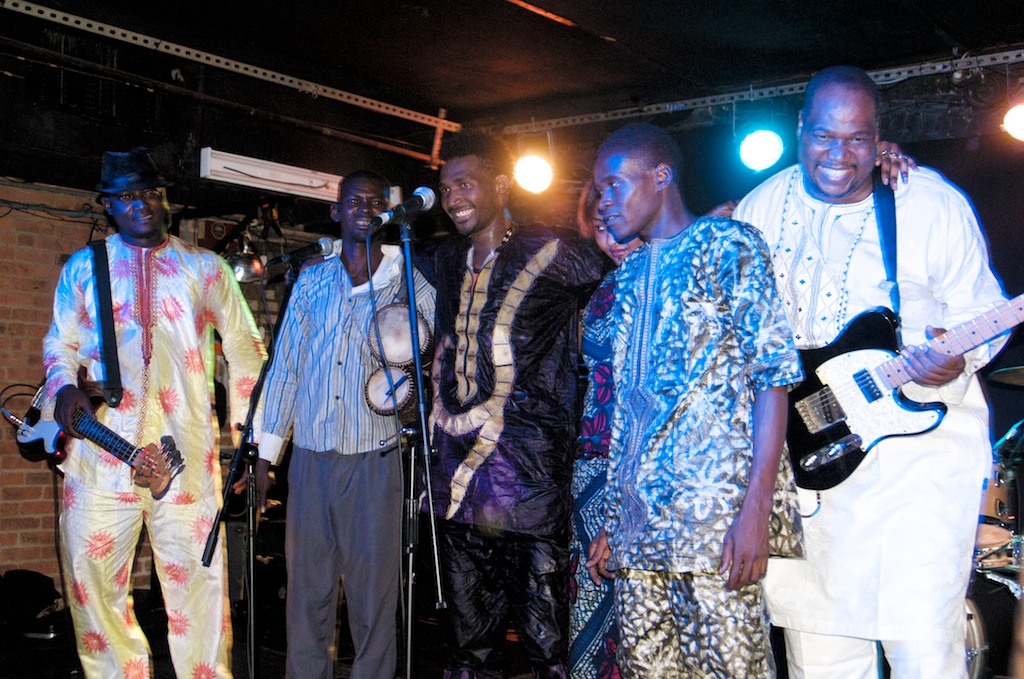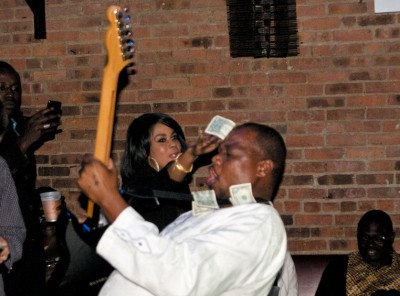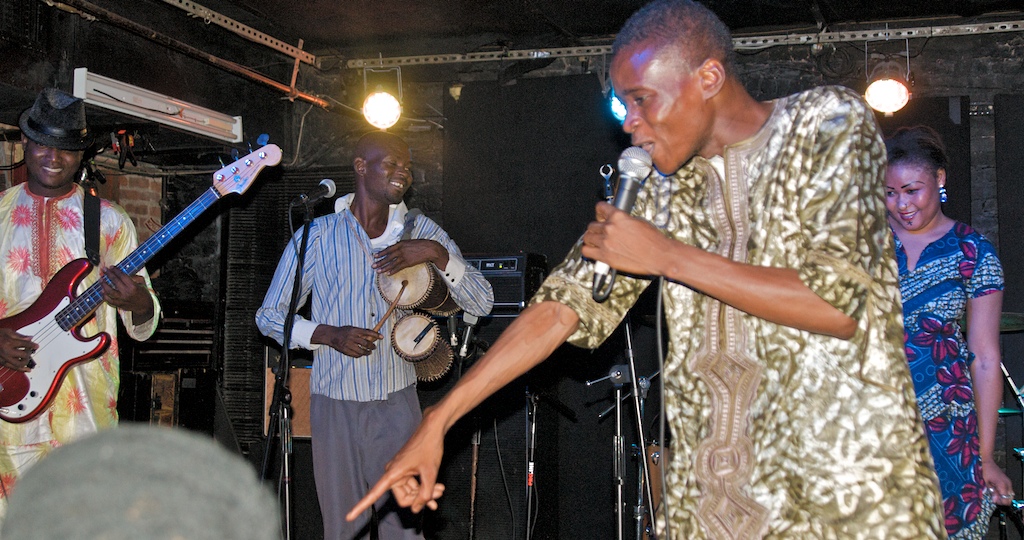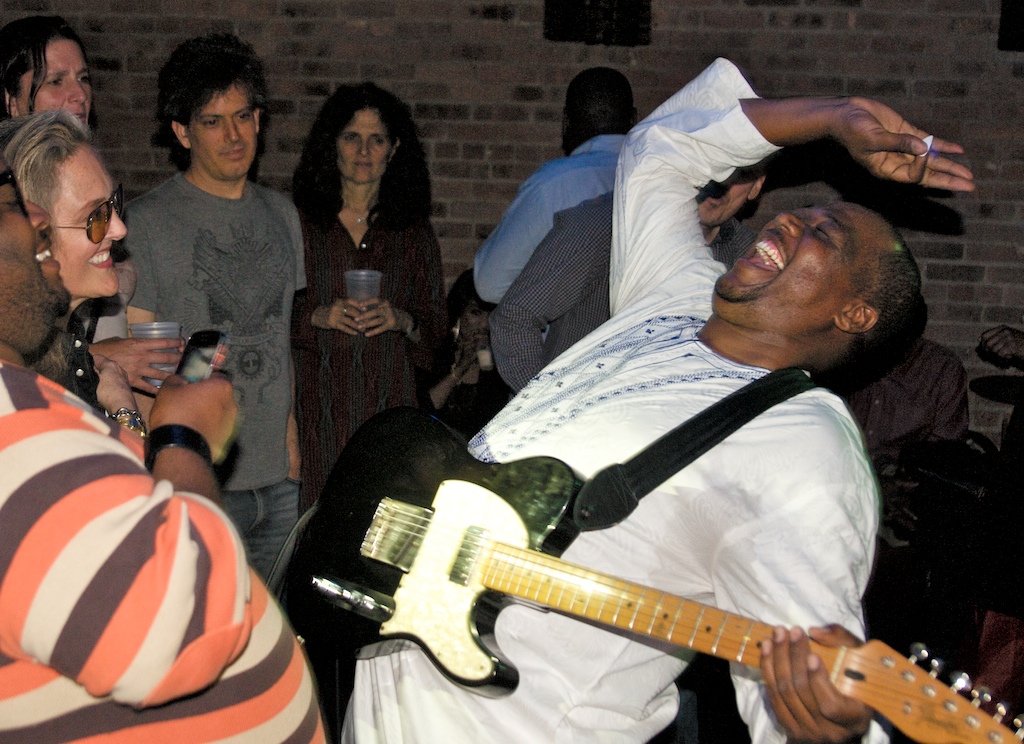Blog October 24, 2013
Tal National: Niger's Guitar Royalty
Tal National are a band- in fact, one of the most popular bands- from the west african nation of Niger. After signing to the UK based Fat Cat records, they've released their second album, Kaani, to widespread western acclaim. Minna Zhou was lucky enough to catch up with them on their recent US tour, which was the group's first.
Minna Zhou: We are here today with the founder of an energetic Nigerien group, whose concert we are awaiting with great impatience. His name is Almeida. So, Almeida, for those who are new to your music-- you are very very well established and known in Niger-- but here for us who are novices, could you describe your music? The musicians, the instruments that you use, all of that?
Almeida: Tal National is an orchestra, a musical group, composed of about ten people who play essentially neo-traditional music, which is to say a mixture of traditional and modern music. We have very popular songs in Niger, and to a certain extent throughout West Africa.
Tal National is activity. We are very much based on activity. We create atmosphere; at marriages and at parties in Africa. Today even small children in Niger sing our songs. In all the households in Niger you can find the music of Tal National, and even in West Africa in many of the households of Nigeriens who are abroad. Tal National is well known in our region, but if we are in search of popularity it is so that people can profit from our music.
MZ: Just for us to begin to understand the sound- what type of instruments does the group use?
A: We have modern instruments-- the guitar and a modern drum set. On the traditional side, we have first of all the voice, which is traditional. The traditional songs that we return to. Plus, the instrument, the talking drum.
MZ: The tama.
A: The tama, as you call it over there [in Senegal], which is also traditional for us. So you see it’s essentially two traditional instruments, and the rest is modern, voilà.
MZ: With all of these instruments, you have how many musicians with you?
A: We have about ten musicians who are professionals, who are completely in the group since...some since the beginning, some caught up with the train.
MZ: That is to say that there is a rotation of musicians.
A: A rotation, voilà, that’s correct.
 MZ: When you sing, it’s in Hausa and Zarma and in French?
MZ: When you sing, it’s in Hausa and Zarma and in French?










